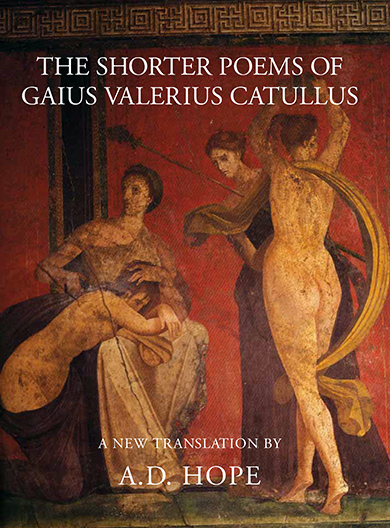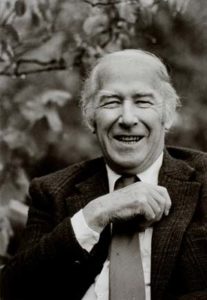
No of Pages: 80
RRP: 24.95
ISBN Print: 978-1-876040-92-5
The Shorter Poems of Gaius Valerius Catullus
Translated By
A.D. Hope (1907–2000) had a next-to-lifelong love for the poetry of Gaius Valerius Catullus, one of the greatest Roman satirists and erotic poets, whose on-again off-again love affair with the woman he called Lesbia is one of the most memorable in classical literature. Some of Hope’s first poems were translations of Catullus and in his last creative decade he turned to Catullus again, producing these fine, quirky and no-holds-barred renditions as a kind of gift to himself that now, seven years after his death and in the year he would have turned one hundred, is offered, belatedly, as one of his parting gifts to the world.
About the Author
Alec Derwent-Hope (1907–2000) was an Australian poet and essayist known for his satirical slant. He was also a critic, teacher and academic. Hope was born in Cooma, New South Wales, and educated partly at home and in Tasmania. He attended Fort Street Boys High School, Sydney University, and then the University of Oxford on a scholarship. Returning to Australia in 1931 he then trained as a teacher, and spent some time drifting. He worked as a psychologist with the NSW Department of Labour and Industry, and as a lecturer in Education and English at Sydney Teachers College (1937–44). He was a lecturer at the University of Melbourne from 1945 to 1950, and in 1951 took the post as the first professor of English at the newly-founded Canberra University College, later of the Australian National University (ANU) when the two institutions merged, a chair he held until retiring in 1968. From 1968 he was appointed Emeritus Professor at the ANU. Although he was published as a poet while still young, The Wandering Islands (1955) was his first collection, what remained of his early work after it was mostly destroyed in manuscript in a fire. Its publication was also delayed by concern about the effects of Hope’s highly erotic and savagely satirical verse on the Australian public. His influences were Pope and the Augustan poets, Auden and Yeats; he was a polymath, very largely self-taught, with a talent for offending his countrymen. He also wrote an amusing ‘reply’ to the poem To His Coy Mistress by Andrew Marvell.
Read More